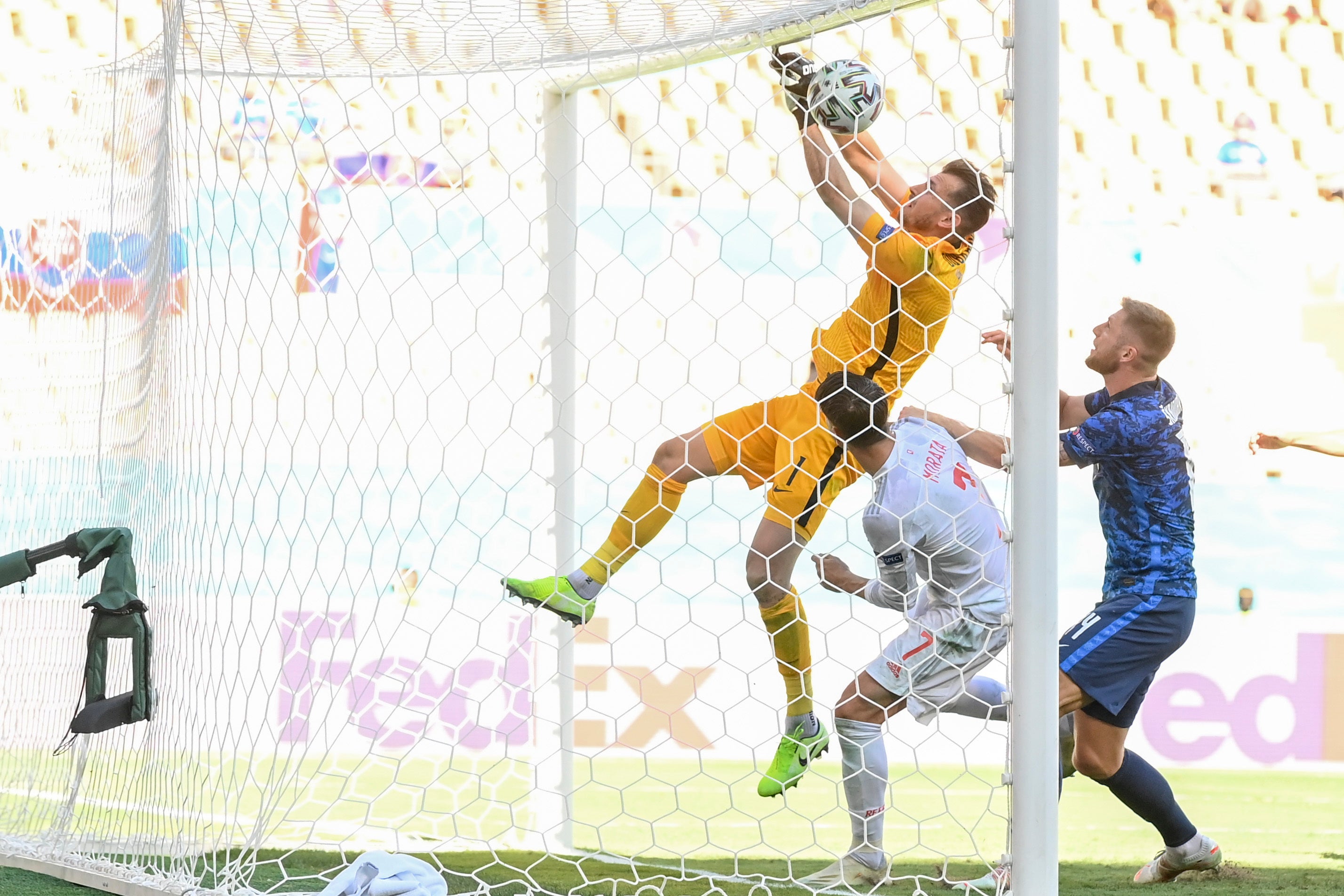Euro 2020: What the numbers tell us after group stage
Penalties are prominent and the record for own goals was broken early on.

Your support helps us to tell the story
From reproductive rights to climate change to Big Tech, The Independent is on the ground when the story is developing. Whether it's investigating the financials of Elon Musk's pro-Trump PAC or producing our latest documentary, 'The A Word', which shines a light on the American women fighting for reproductive rights, we know how important it is to parse out the facts from the messaging.
At such a critical moment in US history, we need reporters on the ground. Your donation allows us to keep sending journalists to speak to both sides of the story.
The Independent is trusted by Americans across the entire political spectrum. And unlike many other quality news outlets, we choose not to lock Americans out of our reporting and analysis with paywalls. We believe quality journalism should be available to everyone, paid for by those who can afford it.
Your support makes all the difference.The Euro 2020 group stage is complete with a number of statistical trends showing up.
Goalscoring is up, with penalties prominent, while the record for own goals at a European Championship was broken early on and continues to build.
Here, we take a statistical look back at the tournament’s first phase.
Goals

There were a total of 94 goals in the 36 group-stage games, putting the tournament well on course for a Euros record.
The 2016 tournament, the first after expansion to the current 24-team format, saw 108 goals scored in total, with only 69 of those coming in the groups, while the total has already surpassed the 16-team tournaments before that.
Eight of those have been scored by players against their own team, including both Portugal and Slovakia scoring two own goals in a game. Three of the eight own goals have come from goalkeepers – Poland’s Wojciech Szczesny, Finland’s Lukas Hradecky and Slovakia’s Martin Dubravka.
Penalties showed similar early signs of struggle, with four of the first five missed or saved. The conversion rate has since improved, with eight successful penalties from 14 attempts – already equalling the record for penalty goals set in 2016, when 12 were awarded. That follows on from a record 29 penalties awarded and 22 scored at the last World Cup in 2018.
Almost 63 per cent of the goals have come in the second half of games, 59 compared to 31 in the first half.
However, Denmark’s Yussuf Poulsen scored after one minute and 39 seconds against Belgium at the time setting the second-fastest goal time in European Championship history – only for Sweden’s Emil Forsberg to strike after a minute and 21 seconds against Poland on Wednesday. Russia’s Dmitri Karachenko still holds the record, one minute and seven seconds, set against Greece in 2004.
Teams
Italy, Belgium and Holland were the three teams to qualify from their groups with a maximum nine points from three straight wins.
The latter also led all scorers with eight goals, with Italy and Belgium joint second on seven alongside Portugal. Spain meanwhile, scored five of their six in one game against Slovakia to match the record winning margin at a European Championship – it was the fourth 5-0 result in the tournament’s history, along with Holland’s 6-1 win over Yugoslavia in 2000.
Italy’s potent attack was matched by a miserly defence, with three successive clean sheets extending their run in all internationals to 11 straight wins without conceding a goal.
England also got through without conceding but only scored two goals at the other end, both from Raheem Sterling. The Three Lions have had the third-fewest attempts on goal, 22, ranking ahead of only eliminated pair Finland (19) and Hungary (18).
Remarkably, Scotland rank sixth in that statistic with 42 attempts, considerably more than Belgium (32) or Portugal (29).
Players
Cristiano Ronaldo leads the race for the Golden Boot with five goals to this point, in the process moving into a share of the all-time scoring record in men’s international football on 109 and setting a new mark with 14 at European Championship finals tournaments.
Five players are on three – Holland midfielder Georginio Wijnaldum, Belgium striker Romelu Lukaku, Poland’s Robert Lewandowski, Czech star Patrik Schick and Sweden’s Emil Forsberg, with all bar Lewandowski through to the knockout stages. A further 12 players have scored twice apiece.
Lewandowski’s 12 shots were the most of any player in the groups, with Ronaldo and Holland’s Memphis Depay one behind.
Denmark midfielder Pierre-Emile Hojbjerg and Switzerland’s Steven Zuber top the assists chart with three each while Germany’s Toni Kroos completed the most passes (288) and England full-back Reece James is the most accurate passer, completing 84 of 85 against Scotland in his only appearance so far.
Kylian Mbappe has spearheaded France’s counter-attacks and it is no surprise to see him lead the way with 17 dribbles, although his nearest rival is the unlikely figure of Denmark full-back Joakim Maehle with 15.
Turkey’s Ugurcan Cakir led all goalkeepers with 18 saves, with Wales’ Danny Ward (14) out in front among those remaining in the tournament.